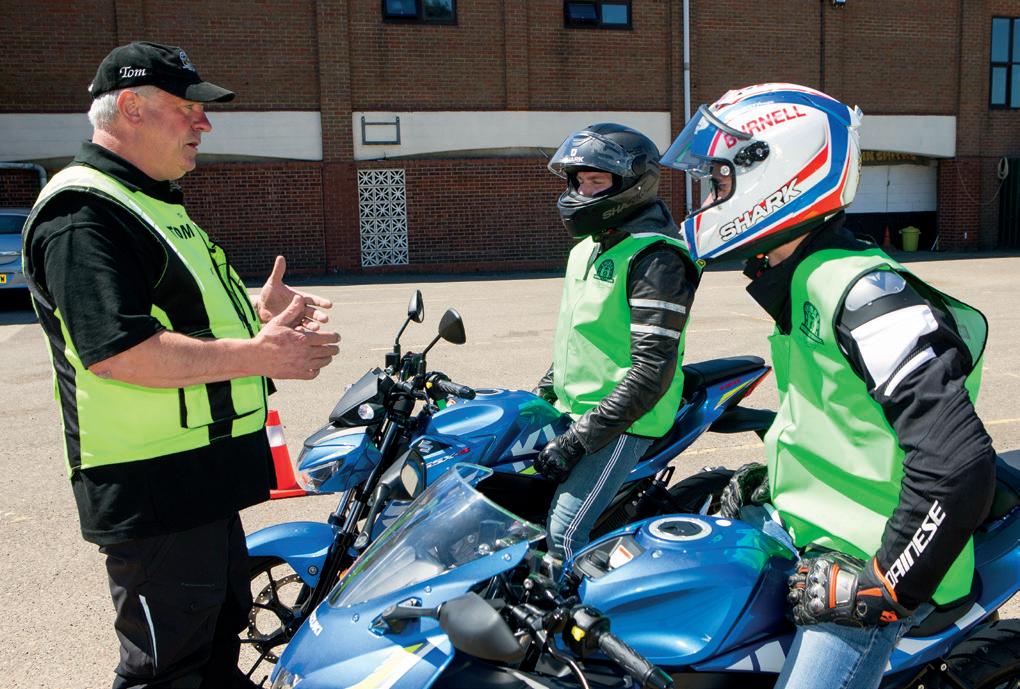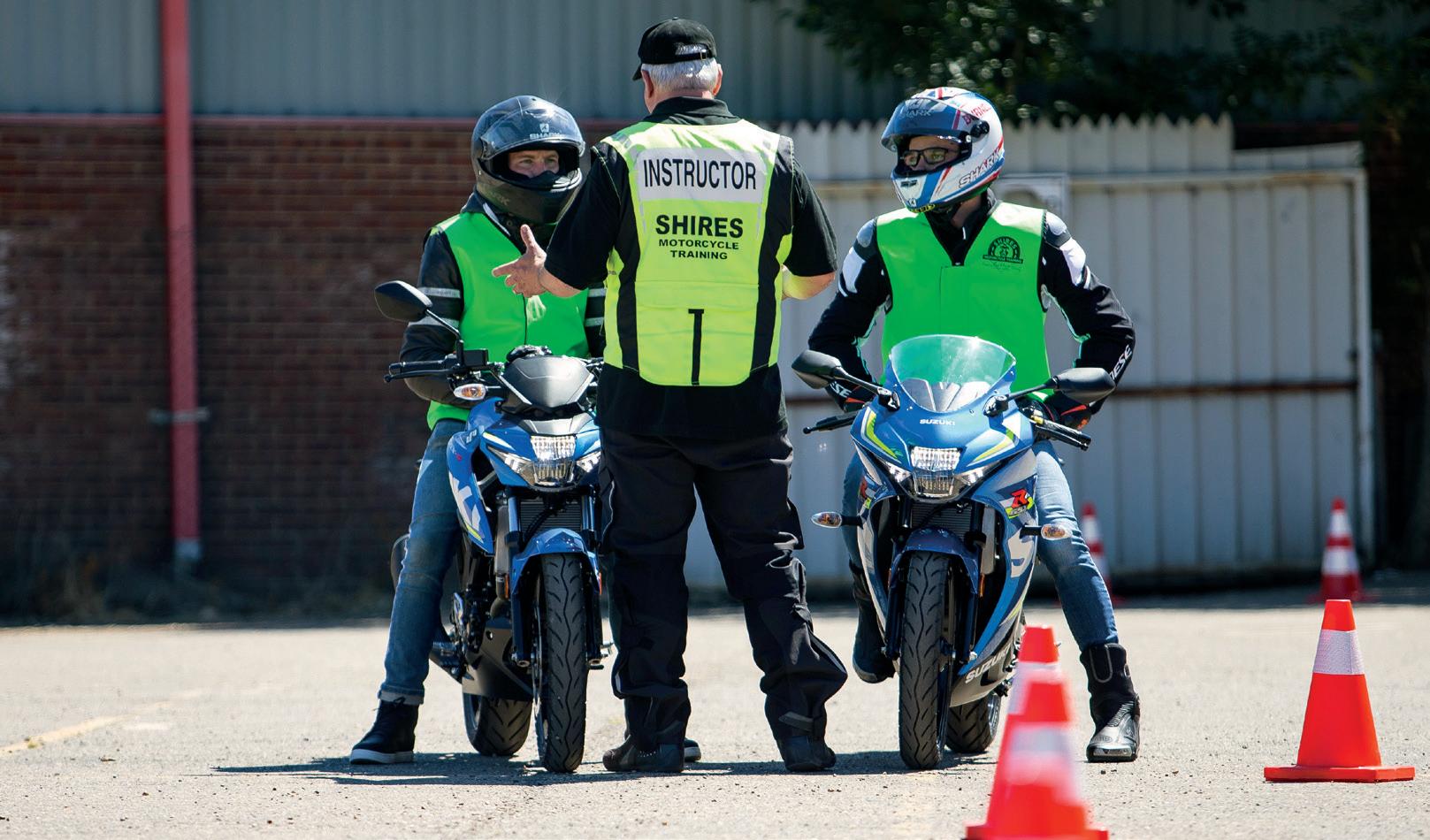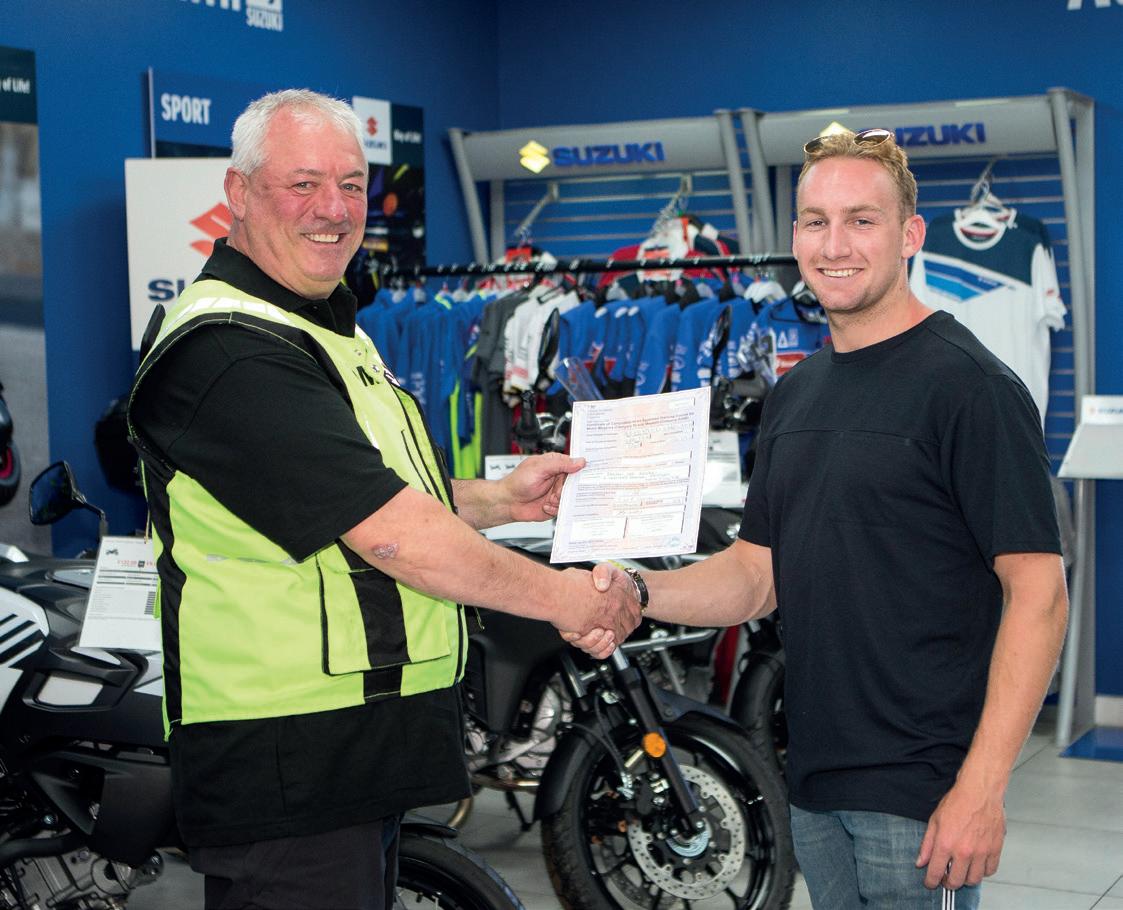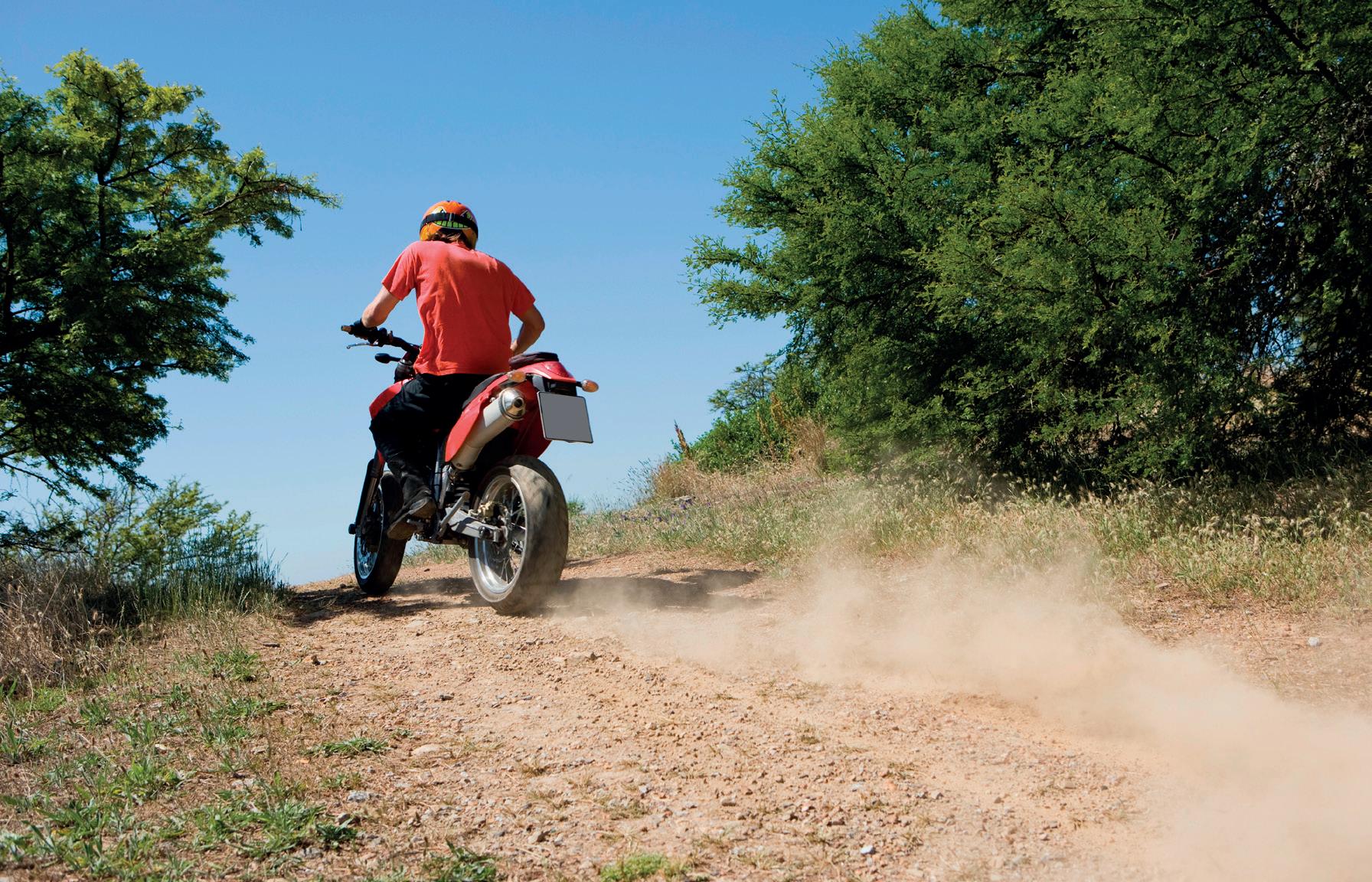
1 minute read
WHAT’S INVOLVED?
The Course 1
Currently, there are five key sections. There’s no time limit; 6-8 hours is normal, but it can be spread over two days. A classroom-based introduction spells out the legal aspects of riding (see tinyurl.com/ qcf3tjk), checks you have a licence and roadworthy bike with tax, insurance and MOT (if applicable) plus L-plates front and rear. Most centres will rent you a bike with insurance. After the briefing, the practical on-site training begins where you’ll learn:
■ Basic controls & checks
■ Starting/stopping the engine
■ Using the stands
■ Wheeling the bike
■ Using the brakes
Get Riding 2
You’ll then move onto an off-road area to start riding. Here you’ll learn:
■ Using the clutch & gears
■ Riding in a straight line, circles and figures of eight
■ Slow, controlled riding
■ Emergency stops and how to deal with skids
■ Dealing with turns and junctions
A classroom-based briefing follows on the Highway Code, staying visible, road signs and riding defensively.

On The Road
You’ll next ride for at least two hours on various roads that take in traffic lights, junctions and roundabouts. When your instructor feels you’re safe to ride solo, you’ll be issued with the DL196 (CBT) Certificate. This is valid for two years and entitles you to ride on the road with L-plates but not carry a pillion or ride on motorways. You’ll need to re-take the CBT if you don’t pass both the theory and practical tests before the CBT Certificate expires.

CAN I RIDE OFF ROAD?
Taking a motorbike off road is great fun, provided you are on a bike designed for the job and you stay the right side of the law. But riding on footpaths, bridleways or in public parks is a big no-no. There are a range of measures the police could take if you ignore the rules. Under the Police Reform Act 2002, they could even seize your bike!

This is where you can ride off road, so long as you give space to others.
■ Byways open to all traffic (check the key on an OS map).
■ Private land, with the owner’s permission (check insurance still covers you).
The Trail Riders Fellowship www.trf.org.uk is a great resource for responsible trail riding.










